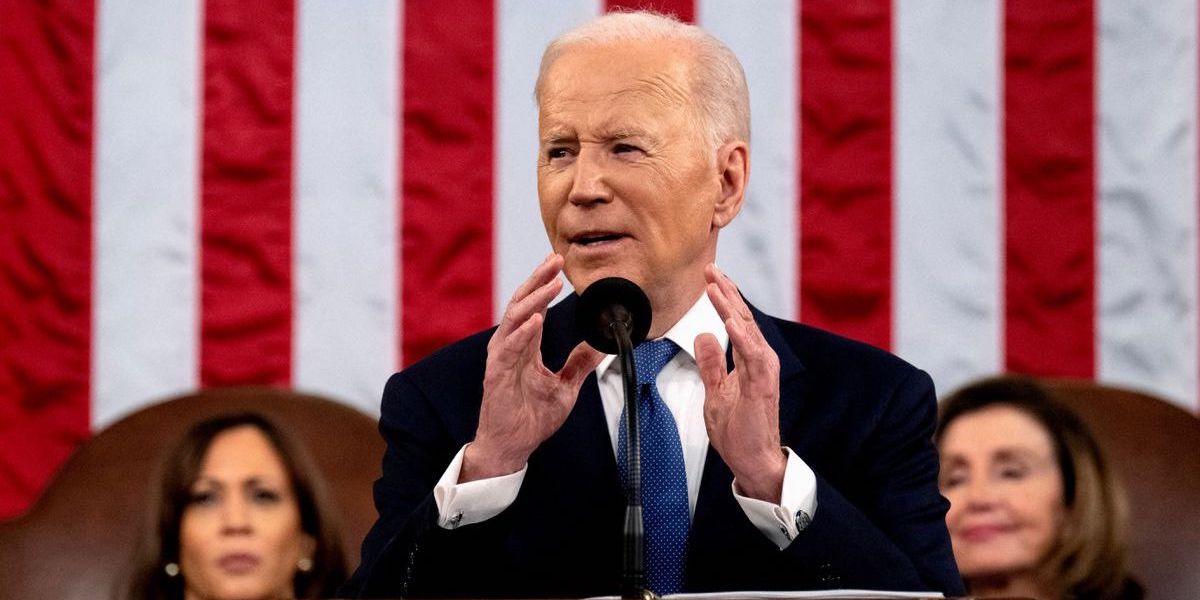Washington, D.C., March 2 – Last night, President Joe Biden gave his State of the Union Address at the US Capitol Building, as tradition and the US Constitution dictate. Given recent world events, President Biden talked extensively about the invasion of Ukraine by Russia. But the speech also contained multiple mentions of issues with direct implications for the 61 million Americans already living with disabilities and the 1.2 million Americans who are newly disabled thanks to the COVID-19 pandemic.
Capping the Cost of Insulin
One of the guests seated in the gallery with First Lady Jill Biden was 13-year-old Joshua Davis of Midlothian, Virginia, who lives with Type 1 diabetes. President Biden told his story and called for capping the price of insulin. The President said, “for Joshua, and for the 200,000 other young people with Type 1 diabetes, let’s cap the cost of insulin at $35 a month so everyone can afford it.”
Diabetes is a disability that affects over 34 million Americans and has major intersectional implications. The CDC reports that new diagnoses of diabetes were highest among Black and Hispanic/Latinx adults, and that fully 16.3 percent of adults with a disability have diabetes, compared to only 7.2 percent of their non-disabled peers.
“Test to Treat” Initiative and COVID-19 Pandemic Response
President Biden took time during his speech to announce a new “Test to Treat” Initiative, aimed at encouraging COVID testing at local pharmacies and immediately responding with “antiviral pills on the spot at no cost.” These antiviral pills from Pfizer reduce “chances of ending up in the hospital by 90%.” The President credited the pharmaceutical giant for “working overtime to get us 1 million pills this month and more than double that next month.”
President Biden stated that “If you’re immunocompromised or have some other vulnerability, we have treatments and free high-quality masks” and he claimed that “we’re leaving no one behind or ignoring anyone’s needs as we move forward.”
However, many disability advocates are fearful of what the CDC’s new “community-level” metrics will mean for people with disabilities across the country. One Forbes op-ed by Judy Stone said that the CDC has “essentially throw[n] vulnerable people under the bus.” Likewise, the Arc’s CEO Peter Burns excoriated the Administration, saying that “this change to the masking guidance specifically lays out a completely separate set of rules for people with disabilities, recognizing that they are still at risk, but not asking the general public to continue to take protective measures to help reduce their risks.”
“Unity Agenda” includes Focus on Opioid Addiction, Mental Health and Cancer
The end of President Biden’s speech focused on four items that he hoped Congress could pass in a bipartisan way, and all four of the items tied into various disability issues. The first item was fighting the opioid crisis. The Administration is requesting “a historic $41 billion for drug policy efforts that will further these efforts.”
Another critical issue identified in President Biden’s unity agenda is the issue of accessing mental health services and meeting the moment created by the current “national mental health crisis.”
As documented in a White House press release shared before the speech, the Administration highlighted that “two out of five adults report symptoms of anxiety or depression,” “Black and Brown communities are disproportionately undertreated” and that “the grief, trauma, and physical isolation of the last two years have driven Americans to a breaking point.”
The Biden Administration’s mental health strategy focuses on expanding the pool of available behavioral health providers, diversifying the mental health workforce, and strengthening “community-based” resources.
“Let’s get all Americans the mental health services they need,” President Biden vowed in his speech. “More people they can turn to for help, and full parity between physical and mental health care if we treat it that way in our insurance.”
The President announced an expansion of benefits for veterans who were exposed to toxic chemicals, calling on Congress to ensure that they get “the benefits and the comprehensive health care that they deserve.”
Finally, President Biden talked about his goal to “end cancer as we know it.” The President’s son Beau Biden died of brain cancer, and so the issue is personal to him. He called on Congress to fund “breakthroughs in cancer, Alzheimer’s, and diabetes and more.”
You can read President Biden’s address in its entirety at the White House website.

Be First to Comment